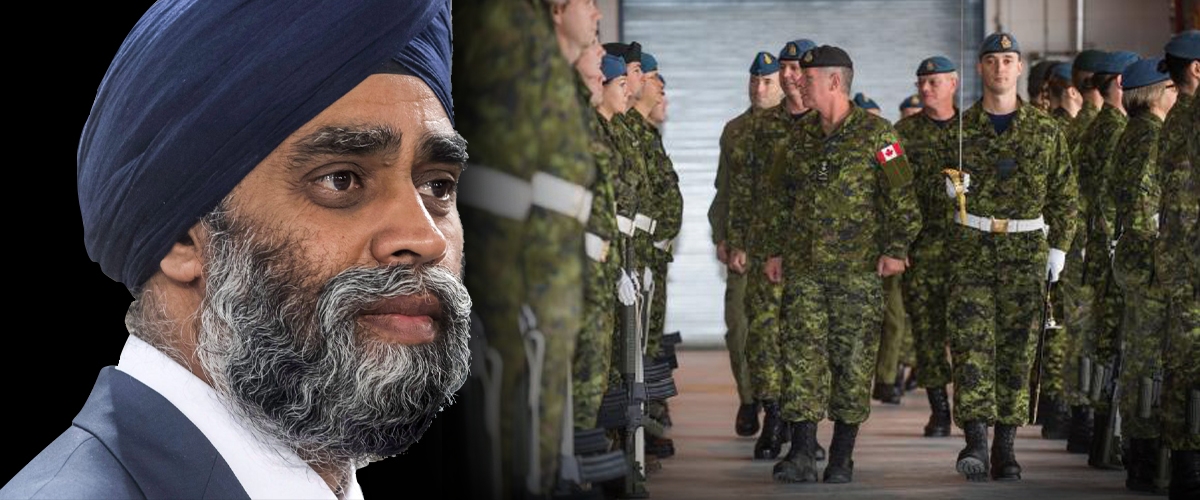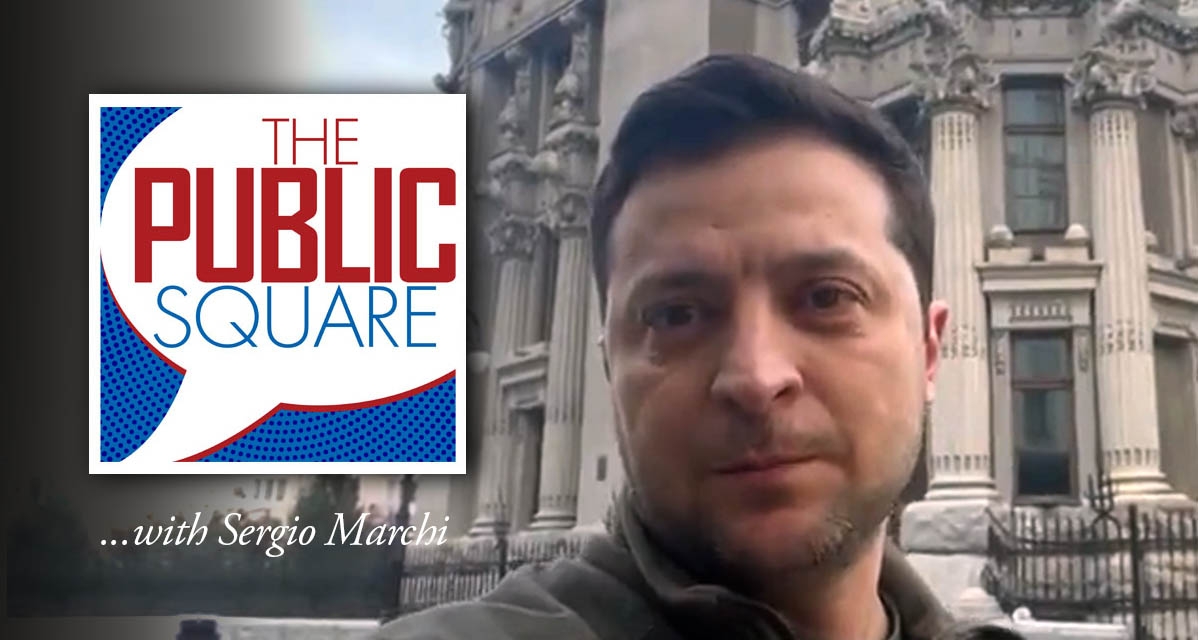
What could the Minister of National Defence have investigated?
There have been a great many public comments, assertions, allegations, and observations about the current ‘crisis’ in the Canadian Forces. These have been raised in news media reports and in Parliamentary Committee meetings. I suspect there has also been a great deal of ‘chatter’ in social media. I also find that many of these comments, assertions, allegations, observations – and the inevitable conclusions that follow – contain misrepresentations, errors, and half-truths. Over the coming days, I will offer some informed commentary on the legal dimensions of some of these issues in order to encourage informed discussion and debate.
The first of the issues that I will address is the suggestion that the Minister of National Defence (Minister) ought to have investigated, or otherwise been involved in an investigation of, the allegations that Gary Walbourne, the DND/CF Ombudsman, had attempted to bring to his attention on 1 March 2018.
When he appeared before the Standing Committee on National Defence on the afternoon of Friday, 12 March 2021, the Minister, Harjit Sajjan, frequently and consistently stated that it would have been improper for him, as a politician, to have directed, or involved himself in, an investigation of the (then) Chief of the Defence Staff (CDS). He adamantly insisted that such action, which he characterized as political interference in an investigation, would undermine the rule of law. It would not be inaccurate to suggest that he even admonished certain Members of Parliament, who were ‘cross-examining’ him (for lack of a better term), for suggesting that he could have done so.
And the Minister’s assertion was correct – to the extent that it related to an investigation by the Military Police, or any police investigation.
But his response may not have been entirely satisfactory to some of the people watching the ‘hearings’ of the Standing Committee on National Defence. Certainly, some of the Members of Parliament on that Committee, particularly those from the opposition parties, did not seem entirely satisfied with that response.
And if they were not entirely satisfied with the Minister’s responses, I suggest that their disappointment is due, in part, to the fact that they were asking the wrong questions. Perhaps more accurately – they were not framing their questions in a manner that would have focused the discussion on the scope of activity that the Minister could have pursued. And God knows, many of those Members of Parliament love to frame their questions with lengthy preambles. Even Mr. Bezan, the Member for Selkirk-Interlake-Eastman, made the blunt comment: “It’s my time, I can [make] a statement if I want …”.
Certain Members of Parliament consistently asked the Minister why he did not investigate (or direct the investigation of) the allegations made against General Vance. The specific wording of the question varied, but they were essentially asking why the Minister did not take it upon himself to investigate the allegations made about his direct subordinate, the CDS. By repeating, or rephrasing, the same question over, and over, they permitted the Minister to retreat, consistently, to his “I cannot interfere with an investigation” redoubt.
When faced with repeated questions concerning potential Code of Service Discipline action, that response is not inappropriate.
However, a Code of Service Discipline investigation is but one course of action that was available in that circumstance. It was not the sole course of action available to the Minister (or the Ombudsman) at that time.
Moreover, as I have indicated in a previous Blog article, pursuing an investigation and prosecution under the Code of Service Discipline would have been a futile course of action, based upon what is presently understood regarding the allegations that have been made against General Vance.
There do not appear to have been any allegations of criminal wrong-doing (i.e. one or more offences under the Criminal Code). What has been alleged publicly in certain news media reports – which are neither military tribunals nor investigations by statutory authorities – are possible breaches of Defence Administrative Orders and Directives (DAOD). Specifically, the former CDS may have contravened DAOD 5019-1, Personal Relationships and Fraternization and/or DAOD 7023-0, Defence Ethics and DAOD 7023-1, Defence Ethics Programme.
Essentially, what is alleged is a breach of ethics, not criminal misconduct. That does not mean that the breaches are not potentially serious. It simply means that the nature of the allegations is distinct – it does not appear that they represent misconduct that could be prosecuted in civil criminal courts.
In such circumstances, there are, generally, two options: (a) proceed under the Code of Service Discipline; or, (b) proceed administratively.
And, as I explain below, the administrative course of action is more commonly used for Op HONOUR allegations generally, and, in the circumstances of alleged misconduct by the CDS, recourse to administrative action would likely be the only feasible course of action.
As I have explained previously, if a charge were laid under the Code of Service Discipline for a breach of one or more DAOD, it would almost certainly be under section 129 of the NDA as an act, conduct, or neglect to the prejudice of good order and discipline. And it would be practically impossible to prosecute a sitting CDS under the Code of Service Discipline where a charge is laid pursuant to s 129 of the NDA. There is no one who could act as a referral authority, and, more importantly, no one of sufficient rank who could be the senior member of a Panel for a General Court Martial.
If a CDS were charged with one or more offences under s 129 of the NDA, he would have a right to elect trial by General Court Martial – trial by a military judge and a Panel of five officers. The Panel for a General Court Martial is the ‘trier of fact’ performing the same function as a jury in a trial before a civil court.
The maximum punishment if an accused is found guilty of an offence under section 129 of the NDA is ‘Dismissal with Disgrace’ or lesser punishment. Pursuant to paragraph 165.191(1)(a) of the NDA, this would not give rise to a mandatory General Court Martial. However, the maximum punishment for an offence under section 129 of the NDA exceeds ‘imprisonment for less than two years’. Therefore, pursuant to paragraph 165.192(a) of the NDA, the proceeding would not be limited to a Standing Court Martial. Thus, pursuant to section 165.193 of the NDA, if General Vance had been charged with one or more offences under s 129 of the NDA, he would have had a right to elect trial by General Court Martial.
However, it would haver been impossible to empanel a 5-officer Panel for such a General Court Martial. Where an accused holds the rank of at least Brigadier General or Commodore, it is not necessary that all Panel members hold ranks equal to, or higher than, the accused (which is the norm for accused below the rank of Colonel or Captain (Navy)[1]). By virtue of subsection 167(4) of the NDA, the Panel may be comprised of officers at or above the rank of colonel. However, by virtue of the same provision, the senior member of the Panel must be an officer of, or above, the rank of the accused. There is no officer in the Canadian Forces at or above the rank of the CDS. The CDS is the only General/Admiral (colloquially referred to as a ‘four star’ rank, courtesy of the influence of our American cousins). There was no officer who could have served as the senior member of a Panel convened to try a CDS.
Arguably, pursuant to article 11.01 of the Queen’s Regulations and Orders for the Canadian Forces (QR&O), the Minister could have promoted another General Officer to that rank to serve as the senior member of such a Panel. However, that article presumes that the recommendation for such promotions would originate with the CDS. That might have been a little problematic. Moreover, any promotion approved by the Minister would have been open to challenge by General Vance as an arbitrary selection of an officer to serve as the senior member of the Panel that would improperly influence the independence and the impartiality of the tribunal. And, as the Minister has said, he is loath to exert improper influence on such a process.
And all of this assumes that a charge could even be preferred for court martial. After all, the CDS does not have a commanding officer or superior commander to serve as referral authority pursuant to Chapter 109 of the QR&O. I have suggested previously that there is a potential argument for a ‘direct referral’ to the Director of Military Prosecutions (DMP) by the CFNIS, pursuant to a ‘creative’ interpretation of article 107.12 of the QR&O. However, this has never been tested before a court martial, and there are frailties with such an interpretation that would leave it open to challenge by an accused CDS. And, even if such an interpretation were accepted by a military judge at court martial, it would still be impossible to empanel the General Court Martial.
That analysis and conclusion may not have occurred to the Minister during what appears to have been a heated meeting with his Ombudsman on 1 March 2018. After all, the Minister is not a lawyer.
But the Minister is advised by the Judge Advocate General (JAG), who is supported by the 160+ Regular Force legal officers in the Office of the JAG. She certainly would have been in a position to have drawn these conclusions. Granted, the Minister may not have understood the full implication of the circumstances when Mr. Walbourne first attempted to broach the subject. But the Minister would have been able to seek advice from the JAG – and probably should have done so following a meeting in which the Ombudsman, at the very least, intimated that there were allegations against the CDS. Providing such advice is a central part of the JAG’s role in “superintendence of military justice”.2 There is an entire ‘division’ in the Office of the JAG dedicated to providing advice and analysis on issues of military justice.
Thus, the Minister could have made the (logical) decision that, since it would have been impossible to prosecute the CDS under the Code of Service Discipline, he could pursue an administrative inquiry or process. As I say: the allegations against General Vance were not criminal in nature. Otherwise, they could have been referred to a civilian police force (as was done with the former Vice Chief of the Defence Staff, Vice-Admiral Norman). The alleged breaches of DAOD 5019-1 and 7023-0/-1 could have been addressed through administrative processes and it would not have been improper for the Minister, as the immediate supervisor of the CDS, and the person with the statutory management and direction of the Department and Canadian Forces3, to have dealt with that personally.
The Minister was correct that it would be improper for a politician to interfere with a police investigation. However, it would not have been improper for the Minister, pursuant to s 4 of the NDA, to have directed the Ombudsman to conduct an administrative investigation – knowing that this would preclude any Code of Service Discipline prosecution (which would have been precluded, practically, in any event). Such instruction could have directed the Ombudsman to halt investigation only if criminal wrong-doing were identified. And if criminal wrong-doing were identified, it could have been referred to civilian police to pursue within the civil criminal justice system.
That is an example of but one course of action the Minister could have taken. There are others.
My point is that the CDS’ alleged conduct represented a breach of ethics, more than anything. It would not have been improper for the Minister to have met with General Vance to discuss it and to ask for an explanation. After all, as I have explained previously, the position of CDS is held at pleasure. An officer holding that position need not be removed for cause, and, contrary to what was asserted by representatives of the Privy Council Office (PCO) before the Standing Committee, there is no entitlement, at law, to procedural fairness if the Governor in Council opted to remove an officer from the position of CDS.
The Minister objected to the suggestion that he could have been involved in examining the CDS’ conduct, because that would have politicized the process. Here’s the thing: the removal of an officer from the position of CDS is an inherently political decision and act. That authority is vested in the Governor in Council, of which the Minister is a member. Moreover, if it would have ‘politicized’ the process if the Minister had been involved, why was it not politicized when the PCO allegedly became involved, apparently at the Minister’s request? The fact that it involved staff in the PCO, and not actual Cabinet Ministers, does not alter the political nature of the PCO.
In my experience, CF decision-makers at various levels have consistently made decisions to pursue adverse administrative action against subordinates in lieu of Code of Service Discipline prosecution. Indeed, that has often become the norm under Op HONOUR. I contend that this has become the norm principally because the respondent/accused does not benefit from representation by defence counsel (free of charge) before a constitutionally independent decision-maker in these administrative processes. In effect, there is markedly reduced procedural fairness, and the chain of command can, essentially, act with impunity in making those administrative decisions.
Certainly, there are not the same challenges in prosecuting a corporal, sergeant, or major before a court martial as there are in prosecuting the CDS. And, in many cases involving relatively junior personnel, CF decision-makers could have pursued Code of Service Discipline prosecution, but chose not to do so. That was an option before the Minister. In fact, in light of the limitations of the Code of Service Discipline, that was a far more justifiable option.
So, the questions for the Minister ought to be (and ought to have been):
- Since administrative processes are regularly used for the rank-and-file in the CF, rather than recourse to the Code of Service Discipline, why would it have been inappropriate to pursue an administrative process when the allegations involve the CDS?
- In particular, since prosecution of the CDS under the Code of Service Discipline was practically impossible, why was an administrative investigation apparently rejected out of hand?
- Recognizing that the central issue was General Vance’s suitability to remain as CDS, and not the pursuit of a pointless Code of Service Discipline investigation, what would have prevented the Minister from pursuing an administrative approach?
Perhaps he did not recognize that the principal issue that arose on 1 March 2018 was whether General Vance should remain CDS.
Ultimately, why was General Vance entitled to better treatment than the rank-and-file members who have been compulsorily released from the CF without recourse to a Code of Service Discipline proceeding when they were the subjects of misconduct allegations?
Unfortunately, we still don’t have an answer to that question.
1. National Defence Act, RSC 1985, c N-5, s167(6) [NDA].
2. Ibid, s 9.2.
3. Ibid, s 4.








